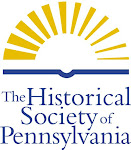The first note appears to refer to Chew v. Chew, the suit between Benjamin III, Katherine (Banning) Chew, and the other executors of Benjamin Chew, Jr. over the settlement of Benjamin Jr.'s estate. It reads, in part:
8 July 1860
B Chew is before the Court again; the opposite parties let him have no rest. They grasp at every thing - not content with endeavoring to seize all his property they try to get what belongs to the estate of his dead brother... they attempt to pillage the living and plunder the dead.

The second note appears to refer to Civil War tensions. It is unclear whether Benjamin III penned the information contained in this note himself, or if he may have copied it from some other source. The quoted lines at the top come from a passage near the end of Sir Walter Scott's poem The Lay of the Last Minstrel (1805), with a slight discprepancy in the first line. A list of "Leaders in Treason" follows, including several politicians who supported secession and the Confederacy. Among them are Benjamin III's brother-in-law James Murray Mason, who was one of Benjamin Jr.'s executors and who worked with his brothers Henry Banning Chew and William White Chew to have him removed as an executor. James Murray Mason served in the United States House of Representative and Senate before the Civil War and in the Confederate government during the war. Others listed are John Slidell, a politician who served in the Louisiana legislature and U.S. House of Representatives and William Yancey, who served in the Alabama and U.S. legislatures. Both men also worked for the Confederate government after secession and Slidell was involved in the Trent Affair with Mason in November 1861.
This note reminds me how directly the Chew family was involved with many of the "movers and shakers" of their time.


No comments:
Post a Comment